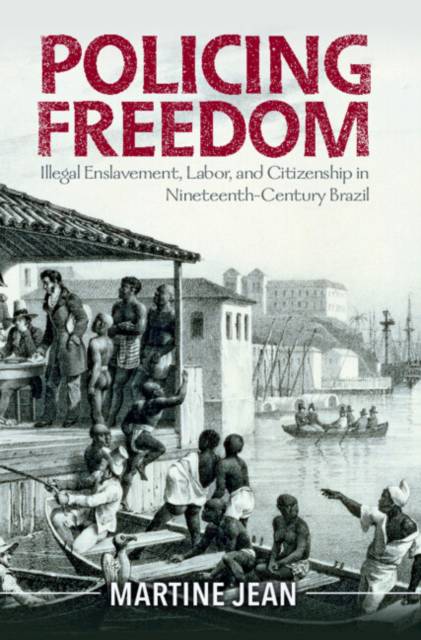
- Afhalen na 1 uur in een winkel met voorraad
- Gratis thuislevering in België vanaf € 30
- Ruim aanbod met 7 miljoen producten
- Afhalen na 1 uur in een winkel met voorraad
- Gratis thuislevering in België vanaf € 30
- Ruim aanbod met 7 miljoen producten
Zoeken
Omschrijving
Policing Freedom uses the case study of Brazil's first penitentiary, the Casa de Correção, to explore how the Brazilian government used incarceration and enforced labor to control the prison population during the foundational period of Brazilian state formation and postcolonial nation building. Placing this penitentiary within the global debates about the disciplinary benefits of confinement and the evolution of free labor ideology, Martine Jean illustrates how Brazil's political elites envisioned the penitentiary as a way to discipline the free working class. While participating in the debates about the inhumanity of the slave trade, philanthropists and lawmakers, both conservative and liberal, articulated a nation-building discourse that focused on reforming Brazil's vagrants into workers in anticipation of slavery's eventual demise, laying the racialized foundations for policing and incarceration in the post-emancipation period.
Specificaties
Betrokkenen
- Auteur(s):
- Uitgeverij:
Inhoud
- Aantal bladzijden:
- 288
- Taal:
- Engels
- Reeks:
Eigenschappen
- Productcode (EAN):
- 9781009289115
- Verschijningsdatum:
- 17/08/2023
- Uitvoering:
- Hardcover
- Formaat:
- Genaaid
- Afmetingen:
- 152 mm x 229 mm
- Gewicht:
- 703 g

Alleen bij Standaard Boekhandel
+ 317 punten op je klantenkaart van Standaard Boekhandel
Beoordelingen
We publiceren alleen reviews die voldoen aan de voorwaarden voor reviews. Bekijk onze voorwaarden voor reviews.











